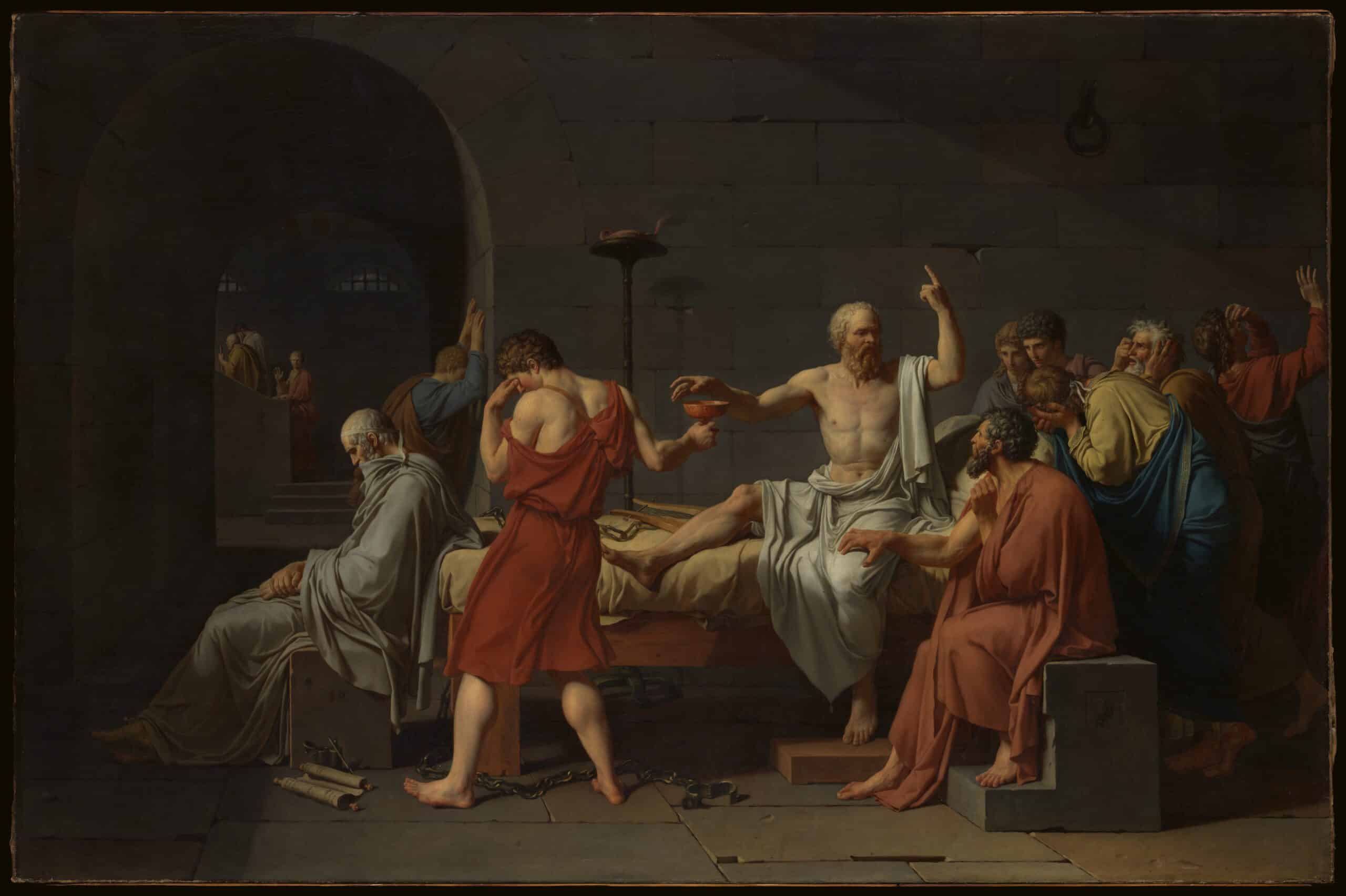
The Death Of Socrates
Socrates, the venerable philosopher of ancient times, met his demise through the administration of hemlock poison—a substance notorious for inducing a frothy, spasmodic death. This event, immortalized in Plato’s Phaedo, unfolds as a poignant portrayal of a seemingly tranquil departure, echoing the essence of an ideal philosopher’s demise. In this conceptualization, death is not merely viewed as a natural occurrence but elevated to the status of an aspiration within the realm of philosophy.
The narrative begins with the aftermath of a contentious trial that accused Socrates of corrupting the youth and religious impiety. Condemned to death by a random jury of Athenian peers, Socrates faces the somber prospect of execution. The pages of Phaedo unfold the methodical administration of hemlock-laced wine by a physician-poisoner. Socrates, in his final moments, undergoes a series of effects, from numbness to weakness and paralysis, culminating in a serene and peaceful passing.
In the cultural tapestry of Ancient Greece, poisoning, particularly through the Athenian State Poison, emerged as an accepted form of capital punishment. The meticulous preparation involved grinding hemlock plant seeds, occasionally enhanced with opium for added tranquility. While Socrates’ demise aligns with the recorded effects of hemlock poisoning, nuances in Plato’s narrative emerge upon comparison with modern case reports.
Hemlock plant, scientifically known as Conium maculatum, houses the lethal alkaloid coniine, exerting a profound impact on the central nervous system. Symptoms, ranging from stimulation to depression, accompany a lethal dose between five and eight grams of leaves. Plato’s detailed account mirrors some aspects accurately, yet modern reports introduce additional dimensions such as excessive salivation and muscle spasms, unmentioned in Phaedo.
Plato, in his crafting of Socrates’ final moments, opts for a portrayal steeped in nobility, delicately sidestepping potentially undignified details. Socrates reclines on his deathbed, untouched by the ravages of decay, resonating with the expected trajectory of a philosopher’s demise. This narrative choice aligns Socrates with the philosophical tenet that death signifies liberation from the corporeal vessel—a profound embrace of freedom.
Socrates, a beacon of philosophical conviction, confronts his fate with unwavering confidence, declining any delay in consuming the fatal elixir. As the tendrils of numbness envelop him, the departure of sensation symbolizes the emancipation of the soul from its earthly confines. Plato, with meticulous attention, weaves a tapestry that presents Socrates’ death not merely as an end but as the crowning achievement of a life devoted to the pursuit of wisdom.
In essence, the encounter between Socrates and hemlock transcends the physical realm, transforming into a profound philosophical odyssey. Plato, the masterful storyteller, meticulously sculpts the narrative to underscore the sublime acceptance of death by a true philosopher—a journey that transcends mortal boundaries.



